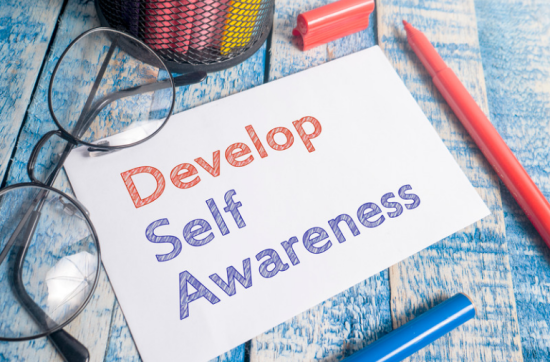🔘 What is the Islamic ruling on alcohol and drugs❓ 🥂🍾💉 Islam, our beautiful religion, provides us guidance about drugs and alcohol.Islam views drugs and alcohol in the category of prohibited and forbidden.👉 Any amount of drugs or alcohol is forbidden to use. Taking even a little wine for social drinking is totally forbidden. Once developed, the habit of drinking in small amounts soon develops into an addiction.🔹 Allah has forbidden drugs and drinks in the Quran: *O you who have believed, indeed, intoxicants, gambling, [sacrificing on] stone alters [to other than Allah], and divining arrows are but defilement from the work of Satan, so avoid it that you may be successful. Satan only wants to cause between you animosity and hatred through intoxicants and gambling and to avert you from the remembrance of Allah and from prayer.
Posts Taggedlearn tajweed
Stop Ignoring These 7 Inspiring Truths
People know who they have the potential to be. The challenge is seeing that process through. Self-development is an art. It takes time. It requires patience. It asks you to step outside your comfort zone. It is challenging — and that’s the point. However, the biggest challenge when it comes to self-development is the process itself. People really struggle with the path and all its twists and turns, much more than they do any single obstacle. But should you learn how to walk that path of self-development, you will learn some tried truths to live by: 1. Any failure can be reframed as a lesson. Self-development is a mindset. To one person, a project going poorly or a relationship ending means they failed. To someone else, it is nothing more than another lesson on the path. By reframing to see the lesson instead of the mistake, you will ultimately learn more and move on to what’s next faster. Original Article
Stories of the companies
Aisha bint Abu BakrOur mother Aisha bint Abu Bakr A’ishah was the favorite daughter of one of the closest friends of the Prophet, Abu Bakr Siddique. She said that there were nine blessing of Allah which distinguished her from all other women in the world except Maryam bint ‘Imran, the mother of ‘Isa1⃣The Angel Jibril had presented her portrait wraped in green silk to Muhammadﷺ and told him that this was the picture of the lady chosen by Allah & to be his consort both in this world and the next. 2⃣She was the only virgin to have become the wife of the Prophet. 3⃣ When the Prophet passed away, he was resting in her lap and was buried in her apartment. 4⃣ Many times angels encircled her apartment with love and respect. 5⃣ Very often divine revelation would come to Muhammadﷺ when they were lying together resting in peace and tranquillity. 6⃣She was the daughter of the loyal and true friend of the Prophet, Abu Bakr Siddique 7⃣ Ayat acquitting her of any wrongdoing had descended from the heavens from Allah proving her innocence. 8⃣She was born a Muslim and had been brought up in pure a environment, and spent her formative years with the purest and best of creatures, the Prophetﷺ. Allah, the Lord, the Sustainer of the Universe promised her Divine Forgiveness and abundant bounties. Her knowledge:She had a brilliant mind and a remarkable memory; and the distinction of being the source of the most Ahadith because of her long association with Muhammadﷺ. Her knowledge of the many branches of religion like Fiqh and Shari’ah, her wisdom in interpretation, her mastery of the teachings of the Prophet her trustworthiness and integrity – all these qualities made her one of the most remarkable personalities of the time. Her Charity:She was very tender-hearted and no needy person left her house empty-handed. A glad tiding to het: During her lifetime the Prophetﷺ gave her the wonderful news that she earned a place for herself in Paradise. The Angel Jibril personally greeted her. great_women_of_Islam Joining the household of the prophet🤍 Aisha……
How To Become Ridiculously Self-Aware In 20 Minutes
Four years ago my sister got me something that would dramatically alter the direction of my life. In fact, it was probably the most influential gift I’ve ever received. It would help me find my true calling, become a writer at the Huffington Post, and go on a 5-month road trip across America by myself. You know what it was? One of these… A journal. A freaking journal. Here are 4 Life-Changing Benefits Of Daily Journaling You’d think that sitting down and putting pen to paper wouldn’t be that life-changing of a practice. In this article you’ll learn four things.. Why journaling’s the secret to not getting angry/upset much anymore. How it can show you why certain strategies work and don’t work. How writing can teach you to be more “present” in your everyday life. How journaling will help you become incredibly self-aware (the MOST IMPORTANT benefit by a long-shot). Original Article
What’s the Point of Self-Improvement Anyway?
There’s a paradox with self-improvement and it is this: the ultimate goal of all self-improvement is to reach the point where you no longer feel the need to improve yourself. Think about it: The whole goal of improving your productivity is to reach the point where you never have to think about how to be more productive. The whole point of pursuing happiness is to reach the point where one no longer has to think about being happy. The whole point of improving your relationships is so that you can enjoy some drama-free cunnilingus in the McDonald’s drive-thru without almost crashing the car. (Still working on that last one.) Self-improvement is therefore, in a weird way, ultimately self-defeating. The only way to truly achieve one’s potential, to become fully fulfilled, or to become “self-actualized” (whatever the fuck that means), is to, at some point, stop trying to be all of those things. Original Article
Self-love is the basis for self-improvement
There’s a quandary I hear people talk about a lot in the self-improvement world which goes something like this: “Should I keep trying to change, or should I just learn to love myself?” The people posing this question almost invariably feel terrible about themselves, and further, they assume that’s par for the course. It isn’t. In fact this whole “self-love vs self-improvement” thing is a false dilemma, one that badly misunderstands the role of self-love. This equates loving yourself with thinking you’re just fine the way you are. It treats self-love as a reward for being the person you want to be. It assumes that your self-regard should be based, in some sense, on you being objectively “good.” And conversely, it equates wanting to change with disliking yourself. But ask yourself- is this true of your love for other people? If you love someone else, surely that means you want the best for them? You want them to be healthy, happy and successful. If you have children, you want them to do well in school. If a friend is unhappy with their life, you want their life to change so they’ll be happy. Apply the same standards to yourself that you do to others- love yourself the way you love your friends and family. Decide to be better because you deserve better; because you love yourself and want to enable yourself to live your ideal life. Original Article
How to Supercharge Your Learning and Self-Improvement
One of my favorite pieces of ancient wisdom comes from the Stoic philosopher Epictetus: We have two ears and one mouth so that we can listen twice as much as we speak. Sure, that may not be the real reason we have two ears and one mouth, but it reveals a useful pattern that we see repeated in communication in general. Communication essentially has two parts: transmission and reception. These will manifest differently depending on the medium, but the general scheme is the same. Textual Communication: writing and reading Verbal Communication: speaking and listening Pictorial communication: displaying and viewing Simply Put, 2:1 Is Key If we expand Epictetus’s aphorism into a suggestion for how to more effectively communicate, we get something like the following: When it comes to communication, you should work hard to receive twice as much as you transmit. In other words, you should listen twice as much as you speak, read twice as much as you write, and pay twice as much attention as you receive. Let me unpack that last one a bit actually, as it’s a bit complex. When around others, we can either be looking to get attention, or we can be paying attention to those around us. The difference between the two is just like the difference between talking and listening — though it expands far beyond the realm of verbal communication. It’s about your attitude as a communicator — your purpose for communicating. And a 2:1 ratio helps to remind us that we should be communicating in a way that helps to enrich us, and to build relationships. Original Article





